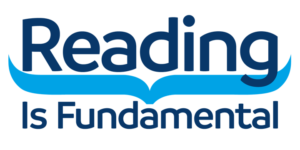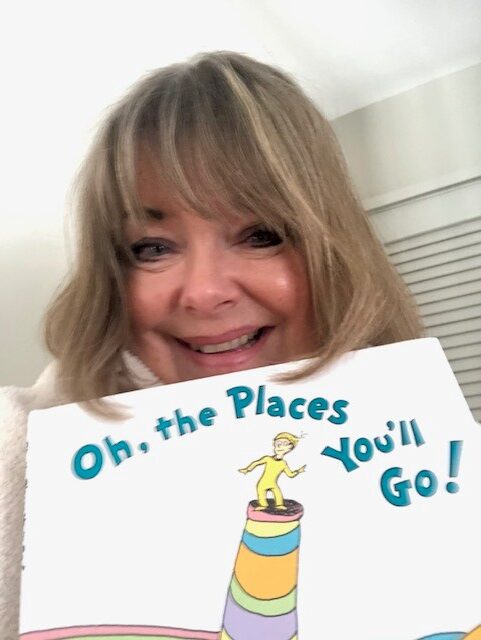“Reading is an act of civilization; it’s one of the greatest acts of civilization because it takes the free raw material of the mind and builds castles of possibilities.” — Ben Okri
For day #15 of #31DaysofWellness, we received two fabulous contributions about today’s self-care tool: Reading. It seems fitting that we share both and give you more to read today to celebrate this tool and share the knowledge and experience from these two dynamic women.
The Top 5 Ways Reading Supports a Healthy Mind
by: Loretta Stevens

Photo by Thought Catalog from Pexels
There are many books from my college days that are still my “go to” books whenever I find myself stuck or need inspiration. A few popular titles are: Think and Grow Rich, The Power of Your Subconscious Mind, eMyth, East of Eden, and most recently, The Universe Has Your Back, and Super Attractor, by Gabrielle Bernstein. Currently, I am reading The Way to Integrity, a new release by Martha Beck, along with members of the S.E.W.N. Book Club. Each month, we share breakthroughs and lessons that help us to lead with new action in a pandemic environment.
Starting a book club and discussing a book topic in a virtual group setting is the first of my top five ways Reading supports a healthy mind. Here are the other four:
- Did you know? Making reading a habit, positively affects your brain. Whether you are studying a course, or reading a story for pleasure? The content, characters, and other details stimulate your brain and motivate action that can last several days after reading.
- Reading also positively affects your mental and physical health. It has been shown that reading can reduce stress levels by 68%. Reading before bedtime helps with relaxation and improves sleep and reading out loud helps to elevate mood, as well as highlighting the words on the page. I use a different color highlighter for each chapter.
- In the case of depression, self-help books are the best type, because the topic also adds a benefit. The results have shown positive improvement in mental health as well as reduce Alzheimer’s in older people by 32% who make reading a habit.
- Finally, reading complex poetry helps the brain remain active.
Mentioned are just a few ways reading strengthens the brain and supports a healthy mind. There is so much more. When you read a book, you are remembering a lot of things, and with so many amazing books to read everywhere, I hope you will look forward to making reading a habit as part of your mental health and exploring all the benefits that reading has to offer.
Loretta Stevens, is a Board member for Mental Health Connecticut, CEO of Competitive Edge Branding, LLC, founder of the Senior Executive Women’s Network, speaker, and corporate trainer.
Reading and Mental Health
by: Janie Perez
 Reading. “Reading is Fundamental.” That is my first association when I think of reading. When I was a child growing up in the late 1960’s and 70’s, (wow, that makes me sound old!) the Reading is Fundamental nonprofit literacy organization was founded in 1966. According to rif.org, “RIF believes that together we can make a real difference and set our children on a path of growth and opportunity. RIF believes every child deserves an opportunity to own books, learn how to read, and obtain the fundamental building blocks to achieve their highest potential.” This campaign that focused on the importance of learning to read and providing resources was the backdrop of my early schooling. RIF books and programs were part of every classroom, with RIF promotional posters visible in every corridor of the school.
Reading. “Reading is Fundamental.” That is my first association when I think of reading. When I was a child growing up in the late 1960’s and 70’s, (wow, that makes me sound old!) the Reading is Fundamental nonprofit literacy organization was founded in 1966. According to rif.org, “RIF believes that together we can make a real difference and set our children on a path of growth and opportunity. RIF believes every child deserves an opportunity to own books, learn how to read, and obtain the fundamental building blocks to achieve their highest potential.” This campaign that focused on the importance of learning to read and providing resources was the backdrop of my early schooling. RIF books and programs were part of every classroom, with RIF promotional posters visible in every corridor of the school.
Later on when I became a first grade teacher, reading took on another more daunting and far more than “fundamental” responsibility. I was now, not merely a student surrounded by the concept of RIF, but a teacher who was entrusted with the critical onus of actually teaching children to read. That realization made me question the “fundamental” part. Reading as a basic skill? That makes it sound easy, expected, accessible to all. Of course, nothing could be farther from the truth. Learning to read requires a multitude of experiences, background, abilities that for some can be challenging. Teaching children to read was a learning curve for me as a beginning teacher. But reading is fundamental, so as a good reader myself, what did I do? I devoured books, articles, anything written about reading and teaching reading. It alleviated my stress, and it worked. I learned how to teach reading and my students learned to read! Some more easily than others, but practice makes perfect, right? No. We scratched that concept, practice makes progress! Another fundamental concept, there is no such thing as perfection. But I digress. Back to reading and RIF. After years of teaching, I became an elementary school principal. Still RIF was a presence. The expectation of ensuring all children develop the skills to read by the end of third grade reigned as my supreme charge as the leader of a primary school. Students must learn to read so they can then read to learn.
Ok so what does all this have to do with mental health? Learning, of course! The journey. The reflection. The connection. What did RIF believe was essential? The path to growth and opportunity. We are all different. We all grow and learn differently. We all face different challenges and we all take care of ourselves in different ways. We all need different things at different times. So, have you ever considered reading as a self-care strategy?
Much has been written about how reading is good for us. In an article written by Lana Winter Herbert, “10 Benefits of Reading: Why You Should Read Every Day”, she describes how reading provides mental stimulation, reduces stress, expands vocabulary, improves memory, focus, and concentration, as well as critical analytic and writing skills. Additional benefits include acquisition of knowledge, sense of tranquility and free entertainment. That’s the short list. Other benefits exist.
There are many avenues for self-care. Exercise, meditation, gardening to name a few. In fact, right here, MHC is sharing 31 of them during this month dedicated to mental health. Think about reading and your journey in developing a self-care toolkit. Has reading crossed your mind as a tool to add to your kit? Have you sought information from a book or article to help handle a stressful situation or time in your life? Have you picked up a book to escape for a while? Nothing is better to settle a racing mind than focusing on a well told story that is intriguing or fantastical. Books can take you to a totally different place, time, and mindset. Are you someone who thrives from a routine? Having a structured time to read each day can give you something to look forward to and/or be a way to wind down from the day.
For me, reading represents both growth and opportunity. Clearly, as a student and an educator reading was a way to acquire knowledge, but there is so much more to reading than that. Reading is relaxing and pleasurable. There is nothing better than sitting outside, soaking up the sun and immersing myself in a great book. If you’re not an avid reader, it may seem difficult to start a book or even focus on comprehending the message. I know I have reread passages many times when I struggled to concentrate. The good news is, and research supports this, the more you read, the better you get at it.
 Reading has always been a “go to” along my journey of what works for me. You can read alone or with a partner or in a group. Reading is a friend you can always have with you. As a child, my most favored present was a book. Children’s books are so engaging, colorful, packed with meaning and lessons. I loved being read to and then reading aloud to others (my very favorite part of teaching first grade). It was that connection between the characters and me, and between reader and listener that offers comfort. Books connect us. It’s a shared experience, a common bond. Don’t we all search for connection? As an adult, I still enjoy reading children’s books. Have you read a children’s book lately? If not, I strongly recommend it. Read one to yourself, read one to a child or even to your pet. I suspect it will have a calming effect on you and put a smile on your face.
Reading has always been a “go to” along my journey of what works for me. You can read alone or with a partner or in a group. Reading is a friend you can always have with you. As a child, my most favored present was a book. Children’s books are so engaging, colorful, packed with meaning and lessons. I loved being read to and then reading aloud to others (my very favorite part of teaching first grade). It was that connection between the characters and me, and between reader and listener that offers comfort. Books connect us. It’s a shared experience, a common bond. Don’t we all search for connection? As an adult, I still enjoy reading children’s books. Have you read a children’s book lately? If not, I strongly recommend it. Read one to yourself, read one to a child or even to your pet. I suspect it will have a calming effect on you and put a smile on your face.
Books not only offer knowledge, escape, relaxation, they offer activity. Visit a library or a book store. Conduct an online search of your favorite topics. Join a book club, virtual or in person. There are book clubs for every interest. Book clubs that are just a shared reading or a structured discussion. There are so many choices, you are bound to find something that engages you.
So, reading as a self-care tool? Most definitely, it’s fundamental. Give it a go!

